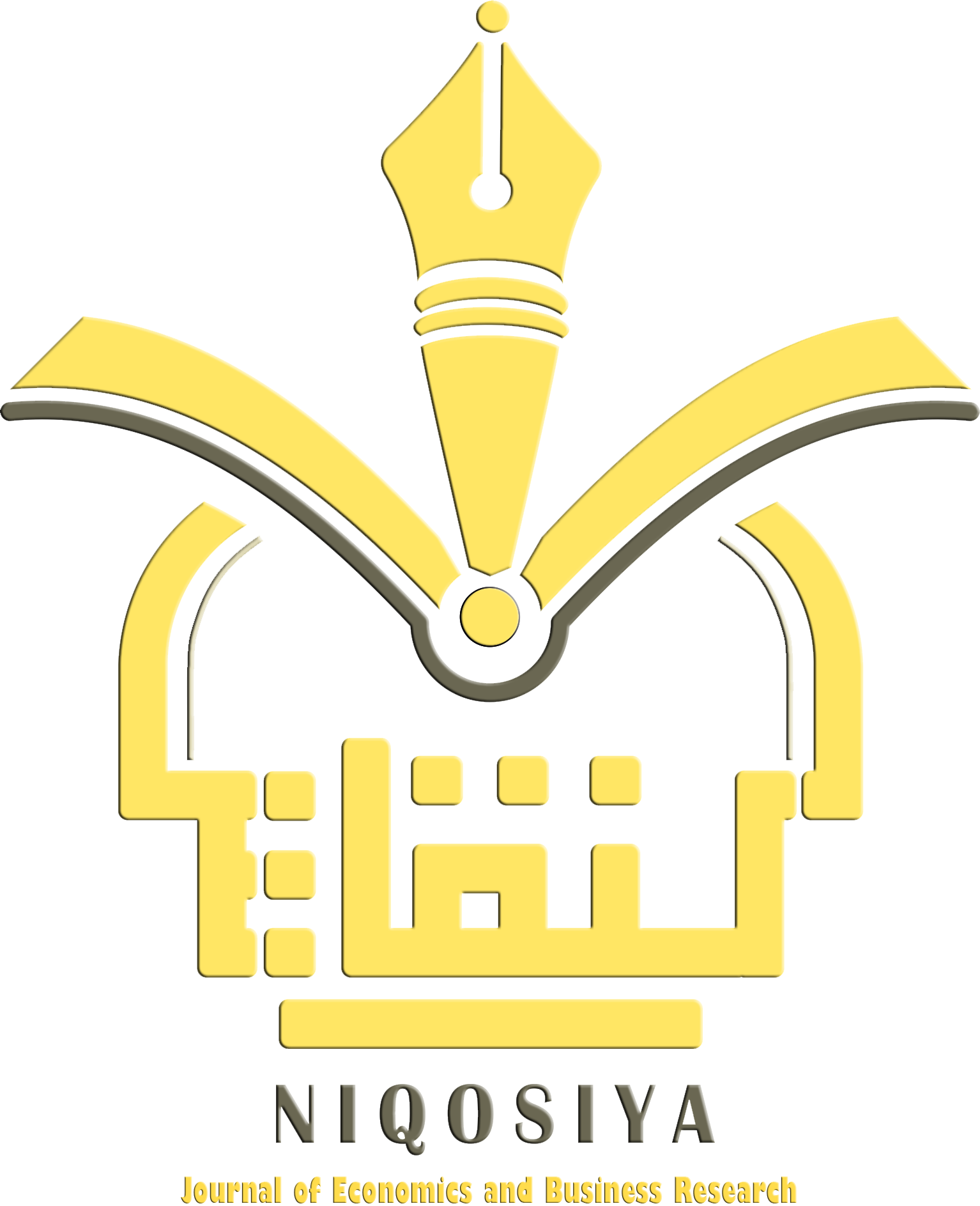Mapping Islamic Social Finance’s Impact on SDGs: A Bibliometric Dive into Decent Work and Economic Growth
Abstract
Introduction: The SDGs are goals that countries around the world want to achieve by 2030. However, this bis project requires a lot of funding. So it requires other alternative funding such as Islamic social finance. This research wants to examine the funding of SDGs, especially goal number 8 using Islamic social finance instruments. Research Methods: This study adopts a bibliometric approach by analyzing 500 articles published between 2015 until 2024 using Publish or Perish, which were sourced from Google Scholar. Based on their focus on Islamic social finance and the SDGs number 8, 25 relevant articles were selected from this initial pool. Keyword analysis, network visualization, and density mapping were performed using VOSviewer software. Examining keyword occurrences and temporal overlaps helped to identify dominant themes, gaps, and emerging areas of focus in Islamic social finance research. Result: The results show that zakaf and waqf are the most frequently discussed topics. This underscore their central role in aligning Islamic financial principles with SDGs. However, instruments such as sadaqah, qard al-hasan, and takaful continue to be under-explored, pointing to significant gaps in the literature. Conclusions: As a recommendation, to fully understand their potential contributions to the SDGs number 8, further research on other Islamic social finance instruments beyond zakat and waqf is needed.
Downloads
References
Bappenas. (2024). Era Baru Keuangan Berkelanjutan. 7 Februari 2024. Ending poverty and achieving the%0Aother objectives of SDGs, however, are no easy tasks. One major challenge for achieving the SGDs is limited financing. Traditionally, the funding comes from government budget, official development assistance and loans fr
Dewananda, W., Leniwati, D., & Wicaksono, A. P. N. (2023). Analysis of SDGS research: The relationship between climate change, poverty, inequality, and food security: The Indonesian context. Journal of Accounting and Investment, 24(3), 937–958. https://doi.org/10.18196/jai.v24i3.19323
Donthu, N., Kumar, S., Mukherjee, D., Pandey, N., & Lim, W. M. (2021). How to conduct a bibliometric analysis: An overview and guidelines. Journal of Business Research, 133(March), 285–296. https://doi.org/10.1016/j.jbusres.2021.04.070
Hassan, M. K., Rana, M. S., Alam, M. R., & Banna, H. (2023). Revitalizing the Role of Islamic Social Finance in Achieving the SDGs: A Comprehensive Review. Al Qasimia University Journal of Islamic Economics, 3(2), 1–24. https://doi.org/10.52747/aqujie.3.2.227
Islamic Business and Finance Series. (2019). Islamic Social Finance Entrepreneurship, Cooperation and The Sharing Economy (V. Cattelan (ed.)). Roudledge.
Julia, T., Noor, A. M., & Kassim, S. (2020). Islamic Social Finance and Green Finance to Achieve SDGs through Minimizing Post Harvesting Losses in Bangladesh. Journal of Islamic Finance, 9(2), 119–128.
Saniff, S. M., & Wan Norhaniza Wan Hasan, M. S. S. (2020). ZAKAT AND SDGs: A LOVE STORY? PalArch’s Journal of Archaeology of Egypt/Egyptology, 17(7), 11275–11284. https://archives.palarch.nl/index.php/jae/article/view/4499
Tupan, T., Rahayu, R. N., Rachmawati, R., & Rahayu, E. S. R. (2018). Analisis Bibliometrik Perkembangan Penelitian Bidang Ilmu Instrumentasi. Baca: Jurnal Dokumentasi Dan Informasi, 39(2), 135. https://doi.org/10.14203/j.baca.v39i2.413
UNDP. (n.d.). Goal 8 Decent Work and Economic Growth. https://www.undp.org/sustainable-development-goals/decent-work-and-economic-growth
Yudha, A. T. R. C., Awwaliah, H., & Pertiwi, E. M. (2021). SDGs Value and Islamic Philantrophy Through Zakah Institution During the Covid-19. Ihtifaz: Journal of Islamic Economics, Finance, and Banking, 4(1), 31. https://doi.org/10.12928/ijiefb.v4i1.2535
Yulita Amalia, R., Nurwahidin, & Huda, N. (2020). Role of Zakat in Achieving Sustainable Development Goals (SDGs) in Indonesia. International Journal of Zakat and Islamic Philantropy, 2, 2672–7471.
Copyright (c) 2024 Khoirun Nisak

This work is licensed under a Creative Commons Attribution-NonCommercial 4.0 International License.














